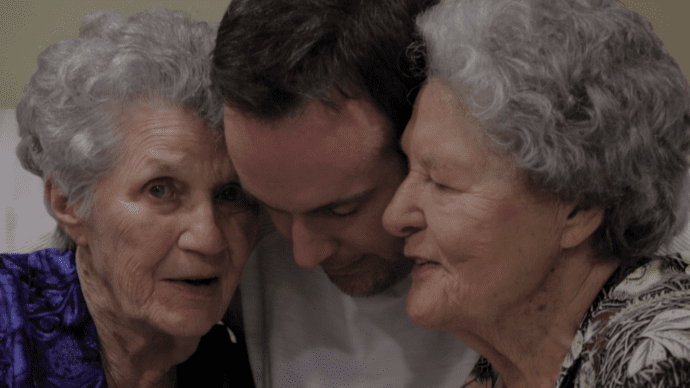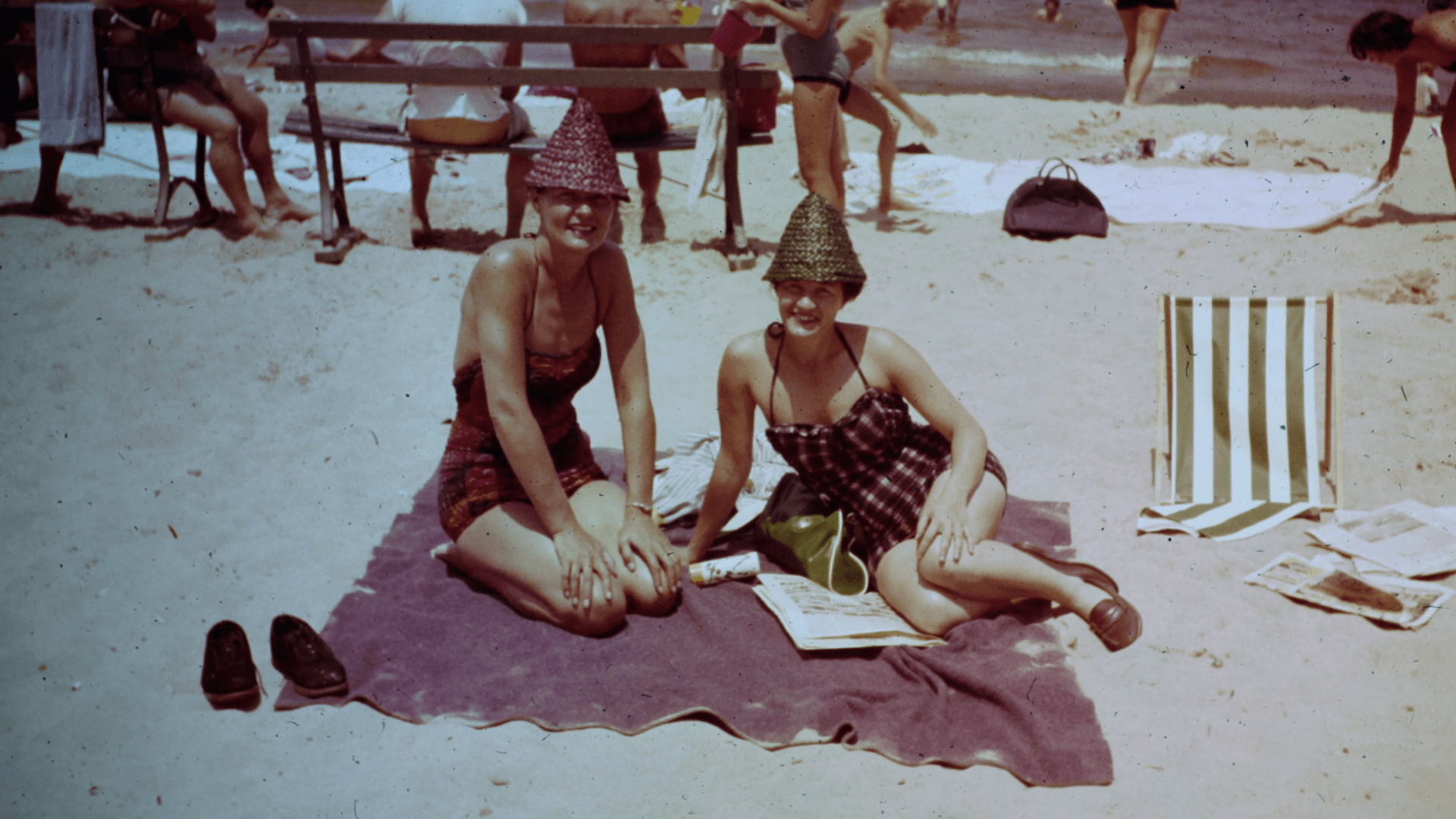In the early 1940s, American chewing gum magnate Philip K. Wrigley got the now famous idea to recruit women to play baseball. The Major League Baseball executive’s lofty goal was to fill ballparks emptied out by the war, and so he dispatched scouts across the U.S. into Canada and Cuba to find the best female players around. Two hundred women received a coveted invitation to try out at Wrigley Field in Chicago, each hopeful for one of 60 spots—and the above average salary of USD $55 to $150 per week. One of the women eventually scouted was Canadian-born utility infielder Terry Donahue. Growing up in rural Saskatchewan during the Great Depression, Donahue had learned how to play the game from her brothers—mostly because there wasn’t much to do after her homework was finished. Invited at 19 to try out while playing for a team in Moose Jaw, she traveled alone to Chicago to fight for her place on one of the league’s expansion teams. “If I could play ball every day, that would be my dream,” she recalled telling her father before that dream actually came true. During the tryout, Terry caught a ball in the eyebrow and, after refusing stitches, slapped on a Band-Aid and finished her impressive on-field performance. She ended up playing for the Peoria Redwings in the All-American Girls Professional Baseball League (AAGPBL) for four years, attending the prerequisite spring training charm school and enduring the scrapes and bruises that came with sliding into base in a short-skirted uniform. In the new Netflix documentary A Secret Love, she explains the inherent tension in the league’s marketing: “They wanted us to look like ladies and play ball like men.” The story of wartime women’s baseball was of course popularized by the beloved 1992 film, A League of Their Own (“There’s no crying in baseball”), but the documentary offers a more intimate look at what it meant to do something revolutionary during the era. A Secret Love, directed by newcomer Chris Bolan and produced by Emmy Award-winner Ryan Murphy (Glee and American Horror Story) takes a look at Donahue’s storied life both on and off the field. It’s a thoughtful, moving portrait—not only of a trailblazing female athlete, but of Donahue’s 71-year love story with a woman named Pat Henschel.
Donahue was 22 when she met fellow sports-enthusiast Henschel, then 18, one morning at a local hockey rink back home in Moose Jaw. Their relationship flourished in secret—they once kissed on the street during a sandstorm because no one could see them—and ultimately they decided it would be easier to, in their words, “be themselves” south of the border. The pair left behind family to move to Chicago, getting an apartment together and passing as “very good friends.” As their story unfolds on screen, the affection between—and for—the film’s subjects is obvious in every frame; Donahue and Henschel are the director’s great aunts. Bolan recalls that when he was growing up he was in awe of their life in a big American city, and of Donahue’s “cool” high profile baseball status. “I’ve been very close to both of them and have been my whole life,” he says on a call from Los Angeles. “They’ve been more like grandmothers to me than great aunts…Terry’s been a role model for me. Terry was the one that told me to continue to pursue my dream and don’t give up.” Opening up to both family and strangers about their relationship is a pivotal part of the film’s storyline—for a long time, no one outside of Donahue and Henschel’s small social circle knew they were a couple. Bolan recalls his own experience with being told, an afternoon that ended up inspiring the documentary. “I’d flown out in 2009 with my wife to go visit Terry and Pat in Chicago. We had a wonderful lunch and went back to their home in St. Charles,” he says. “We were having a rum and coke and they said, ‘We have something to tell you—we’re gay.’ “The floodgates opened up, and we gave them a big hug, and they were just like giddy schoolgirls. They were finally able to tell a part of their life that they’d never shared before.” When Donahue and Henschel were young women they maintained their safety by staying to themselves, avoiding a more active social life. They were green card holders in an era when Chicago lesbian bars were frequently raided; women patrons wearing fly-front pants were commonly “[put] in a paddy wagon for impersonating a man,” activist and former bar-owner Marge Summit explains in the film, with names and occupations often publicly shared. People lost jobs, got divorced, experienced custody issues and, in some cases, died by suicide. “You had to be very careful,” Henschel comments while looking through a collection of love letters to Donahue, her signature ripped off the bottom of each.
“Auntie Pat” and “Auntie Terry” lived many decades in difficult, necessary secrecy, but they also lived lives of great joy. Their adoration for each other is well depicted, as is the love they have for the carefully selected people that made their life together rich and full. Archival material gives us charming domestic moments, laughter at raucous parties and numerous tender snapshots of the pair snuggling in bed. But ultimately it’s the small on-screen gestures and quiet moments that communicate the strength of Donahue and Henschel’s bond—a bond that only becomes more pronounced as they face family friction and the realities of aging together.

Terry Donahue and Pat Henschel with director Chris Bolan (middle). Credit: Courtesy Netflix
Health concerns force hard decisions about how and where the couple will spend their remaining days. In its final act, A Secret Love thoughtfully illuminates the rarely explored difficulties seniors—especially LGBTQ2 seniors—face as their circumstances evolve. In fact, the real draw of this documentary is not the legacy of a groundbreaking female athlete, but the deep connection between two people during a time of enormous transition. The impact of women’s baseball is certainly a fascinating part of Donahue’s story. At its peak, over a million fans went to see AAGPBL games, and 68 of its Canadian-born players were eventually inducted into the Canadian Baseball Hall of Fame. The league is commonly credited with paving the way for other women’s league sports in North America. Beyond that, the AAGPBL continues to be widely beloved many years later—Donahue often kept her baseball cards in her purse, saying it brought people happiness to have her sign them. She’s long been admired as a trailblazer, and now people get to know her whole story. “This is a generation of women whose stories have not been told,” Bolan says. “They grew up in the ‘40s when it was dangerous to be gay. For me, women’s stories are not told enough, lesbian stories are not told enough, and it’s a love story I’ve never heard before. Those things combined… How could I not make this movie and tell their wonderful, beautiful story?” Last March, at the age of 93, Donahue passed away after suffering from Parkinson’s disease. Viewers will be grateful that A Secret Love exists—not only as a vital document of her place in the history of baseball, but as a touching celebration of two people very much devoted to each other. Bolan’s intent was to tell a beautiful love story, and he has more than succeeded.

 Why you can trust Xtra
Why you can trust Xtra


